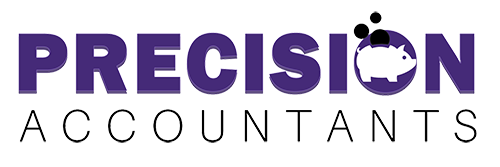When you can understand the total cost of your business, you will be in a better position to develop the right financial strategies to ensure that your business is profitable and has good financial stability.
Business has many expenses, and it is very important to know each of these in order to have an idea of how to manage it properly. This guide will explain what business expenses are, the different categories of expenses, examples and the taxation rules for limited companies.
Are you looking for an accountant or bookkeeper for your business expenses? Get in touch with Precision Accountants. We are expert Chartered Accountants and bookkeepers in Sevenoaks with the skills and knowledge to look after businesses of all sizes and in every industry. Our team will act as an extension of your business, providing safe and supportive guidance for growth.
Call our experts at 01732387059 or send us your queries via email at and we will get back to you as soon as possible.
Whether you are a sole trader or an international limited company, Precision Accountants can manage your finances with ease
Explore our Bookkeeping and Accountancy Services.
What Are Business Expenses?
Business expenses are the general costs incurred in a business’s normal running. These costs are vital for the generation of revenues and the running of business operations. This is where the management and documentation of these expenses become crucial as they affect financial health, tax compliance, and strategic planning.
Types of Business Expenses
Let us learn about various types of business expenses. Here is a list of business expenses:
Operating Expenses
Expenses that are incurred in the course of running a business and are not directly attributed to the production of goods and services are known as Operating expenses. These include:
- Rent and Utilities: Expenses such as office rent, electricity bills, water bills, internet bills, and other connectivity bills.
- Salaries and Wages: Compensation for the employees and the contractors.
- Office Supplies: Items such as stationery, computers, and other items used in the workplace.
- Marketing and Advertising: Expenses incurred in the process of advertising the business, whether through the use of the Internet, print media, or other promotional events.
Administrative Expenses
Administrative expenses refer to the costs incurred in the overall running of a business organization. These include:
- Professional Services: Expenses for lawyers, accountants, and management consultants.
- Insurance: This includes health insurance policies, liability insurance policies, property insurance policies, and other related insurance policies.
- Licences and Permits: The costs that may be incurred in the process of acquiring necessary business permits and licenses.
Capital Expenses
Capital expenses include the amount spent to purchase or enhance property, plant, and equipment. These investments are typically long-term and include:
- Property Purchase: It includes buying land or buildings for business purposes.
- Machinery and Equipment: Acquiring new industrial machines or equipment or upgrading existing ones or office equipment.
- Vehicle Acquisition: Purchasing vehicles for business use.
Tax Deductible Expenses for a Limited Company
A limited company needs to have knowledge of the various expenses that are taxable in order to minimize their taxes. Here is a list of tax-deductible expenses for a limited company:
Office Expenses
- Stationery and Postage: Expenses incurred on stationery and postal services.
- Software: It includes the costs of software and subscriptions that are used in business operations.
Advertising and Marketing
- Website Costs: Costs of website creation, server, and upkeep.
- Marketing Campaigns: Expenses of online and traditional advertising campaigns.
Employee Costs
- Pensions: The cost of employers in the provision of pension schemes for employees.
- Bonuses: This includes the bonuses that are given to employees based on their performance.
What Can I Claim as Expenses in My Limited Company?
These are known as allowable expenses; in a limited company, you can claim them to reduce the tax bill. These include:
Vehicle Costs
- Fuel: Expenses incurred on business trips and travel.
- Maintenance and Repairs: Repair and maintenance costs for business vehicle
Training and Development
- Courses and Seminars: Expenses such as fees for attending business-related training sessions.
Rent and Utilities
- Office Rent: Payment for office rent.
- Utilities: Business-related utility bills.
Business Costs and Tax Categories
Organising the costs in the right tax category makes the tax filing and the financial reporting process much easier. Some of the common business tax categories are:
Cost of Goods Sold
It refers to the direct costs of the goods that the business has sold, including the cost of materials and wages.
Operating Expenses
General costs that are incurred while running a business include rent, wages, and utilities.
Capital Expenditures
Investment in assets to generate benefits for a long period, for instance, equipment and property.
CONTACT PRECISION ACCOUNTANTS
Conclusion
There is no doubt that keeping track and controlling business expenses is an essential part of running a business and adhering to tax laws. Knowing the different classifications of expenses and the allowable ones for limited companies will help in improving the ways on how to handle the financial aspect of a business.
It is recommended that you maintain a detailed account of all the expenses incurred and check the company expenses on a regular basis. Applying these strategies will enable you to manage your taxes wisely, minimize your tax burden, and achieve the success of your business.
